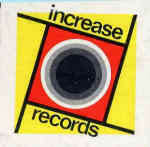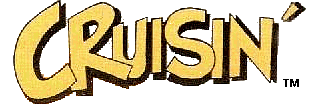It's 1958 radio on the CRUISIN' series and in St. Louis it's the sound of Jack Carney, a man whose sense of humor made it seem he was trying to add a "D" to his station's call letters, WIL. That would have put him in Boston, on WILD, another of the several stations he worked in the Fifties; Jack was one of radio's gypsies before he settled down in Missouri. This was where he made his mark, concocting bizarre stunts that appealed to so many (mostly teenagers) his station went from number seven in the seven-station city to number one six weeks after he joined the staff. He invented a character called Pookie Snackenberg, who became a hero to St. Louis teens. He asked listeners to pull the tuning knobs off their home and car radios so the dial couldn't be moved from WIL - and weeks later irate parents still were digging through the three barrels of knobs Carney had received from their sons and daughters. He offered twenty dollars to anyone who showed up with a bird on his head (after playing a record called Bird On My Head) and there were fifty takers standing around with birds in half an hour. And when it was time for summer vacations to end he asked for fifty words or less - he said he'd settle for one - on "Why I am delighted to be returning to school," the winner to be driven by Carney to class and home each day for a week, in a limousine. Hokey. But Carney's presentation of "The Silver Dollar Survey" was one of the most influential programs on radio at the time.
Rock and roll was going through some peculiar peregrinations in 1958. Its popularity continued to accelerate, but several stations (one of them in St. Louis, coincidentally) began celebrating "Record Breaking Week," during which deejays broke all the rock records in their station libraries to dramatize what was termed, prematurely, "the demise of rock and roll." Dick Clark's "American Bandstand" was pulling eight-million-plus viewers daily and Alan Freed was grossing more millions (in dollars) with a road show that included Jerry Lee lewis, Buddy Holly and the Crickets, Chuck Berry and the Diamonds. Yet, the phrase "rock and roll" itself was being avoided by talent agencies, promoters, even Freed himself. (He preferred "the Big Beat.") And...Elvis Presley was drafted into the Army.
As for the music, it was beginning to get a little "gingerbread-y" (after the Frankie Avalon hit of the same name), as "Bandstand's" voracious demand for personalities and songs turned Dick Clark into rock's Henry Ford. In Philadelphia - also known as Brotherlylovesville - dance crazes, hit records and super-stars were created almost daily, on ABC-TV at five.
The Everly Brothers, Jerry Lee Lewis, the Coasters and others continued their gratifying string of gutty, boistrous teenaged hits...there was a lot of excitement left...but rock and roll just wasn't quite what it had been.
It was a period of settling in on the international scene as well, a period of shifts and starts and stops. Nikita Kruschev was named the new premier of the Soviet Union, Charles DeGaulle became the decade's second general to be elected a president, and there was a new Pope (John XXIII) in the Vatican. President Eisenhower, having recovered from a slight stroke, ordered U.S. Marines into Lebanon, while Egypt and Syria became one nation. And as an atomic sub slipped under the North Pole, the U.S. launched its first satellite...and nuclear test ban talks began.
Other headlines in 1958: Boris Pasternak won the Nobel Prize in literature...the Yankees took the World Series over the Braves..."Gigi" got the best picture Oscar.
The first song on this volume captures the gingerbread-y feel of the period as well as any other. At The Hop by Danny and the Juniors got is big push on the Clark show (where dances were important time-fillers), stayed in the number one spot for five weeks, and offered little musically. (You could stomp to it.) It was Danny's only gold record.
Another hard rocker that stayed at the top for five weeks in a row was Tequila by the Champs, essentially an instrumental, the only discernible lyric being the title, which was shouted in the sort of chorus you'd expect to hear on a Saturday night in a border town honky-tonk.
Love has been the thing about which most popular songs have been written and in R&B and R&R the song about love often becomes something of a novelty number, thanks to the composer's light approach. Example: Book of Love by the Monotones, who ask the burning question: Who wrote it?
And then there's good old Chuck Berry. He wasn't singing about love, not the kind most singers were. His love was aimed at things, usually cars, and in this CRUISIN' volume, Rock and Roll Music. Berry asked no question in this song, making a definitive statement instead: "It's gotta be rock and roll music/If you wanna dance with me." It became an anthem and sold in the millions.
Naturally.
An interest in folk music accelerated in 1958 (as the Kingston Trio sang Tom Dooley) and Jimmie Rodgers recorded his second, third and fourth million-sellers. One of them was Kisses Sweeter Than Wine, a cheery ballad which was (get ready) adapted from an old Irish folk song.
The first side closes as it opened, with another pan of gingerbread baked in Philly, Short Shorts by the Royal teens, one of whose memebers was a skinny singer named Al Kooper. Q: "Who wears short shorts?" A: "She wears short shorts." With a beat.
Chantilly Lace was written and sung by J. P. Richardson, better known as the Big Bopper. His voice- which was a lot deeper than the song - became one of the real emotional favorites of 1958 and the record was the third most played. Rock had a rollicking sense of comedy in the Fifties and this is a good example.
Besides humor, there was a compulsive faddishness about much of rock. Some of the songs here show this, such as when the Royal Teens sing about short shorts and Danny and his pals sing about a record hop, they take as their subjects ones which will be out-of-fashion soon thereafter. Another of these faddish types was Bobby Freeman, a vocalist who liked songs about dancing. In 1958 he had a burning question, too: Do You Wanna Dance? (Answer: Are short shorts sexy? Is a record hop fun?) Shortly afterwards, Freeman was able to make a rhetorical announcement: Betty Lou's Got A New Pair Of Shoes.
Bobby Day's Rockin' Robin was an ornithological sock hop allegory, no mean feat considering the rather narrow lyrical perimeter of the era.
Get a Job is still another of the rock classics and it was recorded by the Silhouettes, still another of the one-shot groups: one smash, and then silence. The opening "lyric" caused the song to be categorized as a parody of all the "doo-wop" sounds of early rhythm and blues: "Dib dib dib dib dib dib dib/Sha na na na..." Good clean fun.
If the Monotones never learned who wrote the Book of Love, Harvey and the Moonglows offered the Ten Commandments of Love. The Moonglows were organized in 1951 in Lousiville, Kentucky, were sponsored by Alan Freed a year later, and signed with Chess in 1954, where they also recorded as the Moonlighters on the sister Checker label. As the Moonglows they also appeared in the exploitation flick, "Rock, Rock, Rock."
CRUISIN'S 1958 volume closes with another of Dick Clark's boys, one of the more imaginative, Duane Eddy, who initiated the now famous "twangy guitar" sound, playing the melody on the bottom instead of the top strings of his guitar. Rebel Rouser took its title from the Rebels, his backup band, and was his first million-selling single. Duane was born in New York, was "discovered" in Phoenix by deejay Lee Hazelwood, and found stardom in Philadelphia, where Clark acquired an interest in Duane's management and recording companies.
More good clean fun.
- Jerry Hopkins
CRUISIN' THE FIFTIES & SIXTIES: A History of Rock and Roll Radio. Conceived and recreated by: Ron Jacobs/Production and Research: Ellen Johnson and Jere Alan Brian/Engineering: John Horton/Art Direction: Paul Gruwell/Cover Art: Mike Royer/All selections are the original performances as released on the following labels: ABC Paramount: Danny and the Juniors, Royal Teens/Cadet: The Monotones/Challenge: The Champs/Chess: Chuck Berry, Harvey and the Moonglows/Ember: The Silhouettes/Jamie: Duane Eddy/Josie: Bobby Freeman/Mercury: The Big Bopper/Rendezvous (Class Records): Bobby Day/Roulette: Jimmie Rodgers/Special thanks to: Tom L. Perryman, WIL Radio. Produced by Increase Records, a division of Watermark, Inc., Los Angeles, California. ©1970 Increase Records.

Back to the

index.

